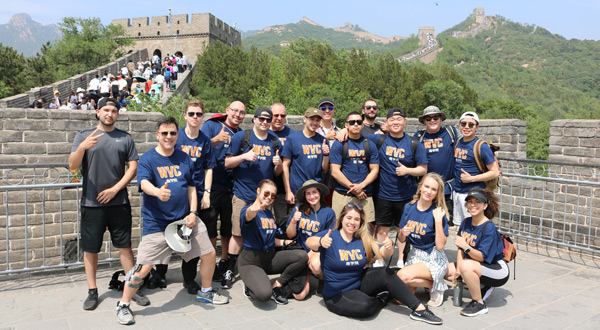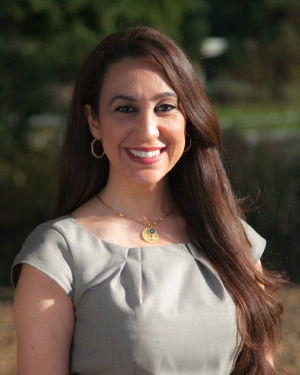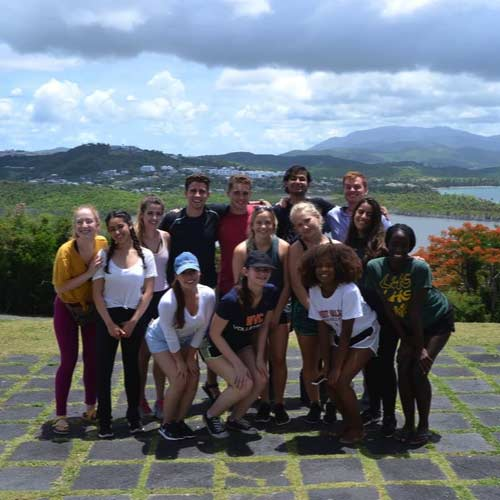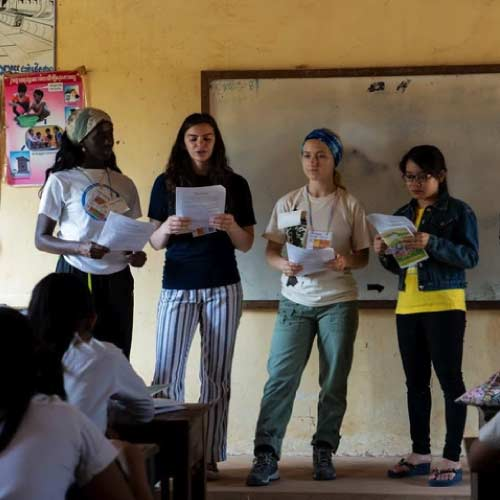
Mission Statement
To give students the platform to work alongside their professors and global communities on the real-world issues they will soon address in their careers, providing an enriched perspective on the course material that they study in their textbooks. The SLI allows students to gain a global perspective while acquiring hands-on experience in going beyond their textbooks, encompassing the many benefits of study abroad, while helping communities in need and sparking their drive for leadership, action, and positive change.
What We Do
The Service Learning Institute (SLI) is the campus program that hosts all “abroad” trips and projects for West Valley College students. The SLI works with organizations and communities throughout the globe to create short-term service or study abroad projects that are connected to a course on campus. Campus faculty can supplement their existing course curriculum to add an “abroad” component at the end of the semester. Both course credit and scholarships may be offered to students interested in taking an “abroad” course on campus.
What Is International Service Learning?
International Service Learning is defined in an article by the Forum on Education Abroad, ‘A structured academic experience in another country in which students (a) participate in an organized service activity that addresses identified community needs; (b) learn from direct interaction and cross-cultural dialogue with others; [and] (c) reflect on the experiences in such a way to gain further understanding of course content, a deep understanding of global and intercultural issues, a broader appreciation of the host country and the discipline, and an enhanced sense of their own responsibilities as citizens locally and globally.’ (2011, 19).
Service Learning Is For Everyone
Regardless of a student’s socioeconomic background, major, or community service experience, there is opportunity available to attend a service learning project. Students may be awarded need-based and/or merit-based financial aid for service learning projects depending on their Service Learning Application. Want to learn more? Check out our Statement on Equity in the SLI Bylaws.

Machu Picchu and Lake Titicaca, Peru
Associated Course
PMGT 15A: Duties of a Park Professional

The Study Abroad Program has now been absorbed as a program within the Service Learning Institute (SLI) and already has trips in the works.
Bylaws of the Service Learning Institute (SLI), West Valley College
Article 1: Purpose
To give students the platform to work alongside their professors and global communities on the real-world issues they will soon address in their careers, providing an enriched perspective on the course material that they study in their textbooks. The SLI allows students to gain a global perspective while acquiring hands-on experience in going beyond their textbooks, encompassing the many benefits of study abroad, while helping communities in need and sparking their drive for leadership, action, and positive change.
The SLI works with nonprofits throughout the globe to create short-term service abroad projects that are connected to various courses throughout the West Valley College campus. It does this by utilizing the campus’ faculty and their existing course curriculum, along with their project partner’s service community needs to rewrite course curriculum to include a “end-of-semester” service project. Both course credit and scholarships1 are offered to students interested in taking a service learning course at West Valley College.
There are also opportunities for students and/or faculty to create their own service learning projects, regardless of their curricular application. These individuals should refer to Article 4 Sections 1-6.
West Valley College is committed to offering its transformational SLI “abroad” projects to any and every student, regardless of ability to pay, ranging from full-scholarships to partial-scholarships. With a focus on Need-Based scholarships, West Valley College's SLI allows students of every socioeconomic background to experience what the world has to offer through the lens of co-curricular service learning, enriching both their course studies and global perspective. Merit-Based scholarships are also available for service learning projects and will be determined using the student applicant's supplemental application responses.
Article 2: Administrative Structure
The Executive Director of the Service Learning Institute shall have the following job responsibilities:
Sub-Section 1: Serve as the liaison between the Service Learning Institute projects and programs and the entire West Valley College campus, greater Saratoga community, and global community, including any and all possible project partners.
Sub-Section 2: Formulate SLI annual goals, objectives, deadlines and vision to be executed by SLI representatives and communicated to the greater campus and global community via program website and communications via email, marketing material, and speaking opportunities.
Sub-Section 3: Receive, evaluate, and approve all service project/program proposals that align with SLI goals and project partner’s in-country support networks:
- When necessary, draft and approve co-curricular service projects directly, working alongside project partners and faculty coordinator to ensure faculty involvement and curriculum approval.
Sub-Section 4: Oversee entire SLI “Study Abroad” budget— allocate all necessary funds to approved SLI projects that align with SLI goals, communicate with West Valley College Finance/Administrative Services Office to ensure proper and timely allocation of funds to all necessary vendors, partners, and SLI representatives.
Sub-Section 5: Work alongside West Valley College Provost and campus Curriculum Committee to approve curriculum attached to existing courses and new service projects.
Sub-Section 6: Draft and coordinate any and all risk management, program partner, and project approval documents necessary for successful service projects and programs.
Sub-Section 7: Nominate annual Faculty Coordinator for the SLI in accordance to SLI mission, present nomination to West Valley College President for final approval.
The Faculty Coordinator of the Service Learning Institute shall be appointed each academic year by the SLI Executive Director with the approval of the West Valley College President. A faculty member can serve in the Faculty Coordinator position for as long as they are approved by the SLI Executive Director. The Faculty Coordinator shall have the following responsibilities:
Sub-Section 1: Ensure the approval of a maximum of one (1) international co-curricular service project per academic division per academic year, and a minimum of two (2) international co-curricular service projects per academic year campus-wide.
Sub-Section 2: Serve as liaison between SLI Executive Director and all curriculum-related project partners and the West Valley College faculty body.
Sub-Section 3: Disperse communication of co-curricular service project opportunities for faculty campus-wide.
Sub-Section 4: Work alongside project partners and interested faculty members to formulate updated curriculum to be attached to projects approved by the SLI Executive Director. This updated curriculum is to be presented to the West Valley College Curriculum Committee for final approval.
The Student Representative of the Service Learning Institute shall be appointed by the Office of the President of West Valley College [based on President’s Office project-based internship?] [OR: by ASWVC Student Body vote]. The Student Representative shall have the following responsibilities:
Sub-Section 1: Serve as liaison between SLI and the West Valley College student body
Sub-Section 2: Lead student outreach and communication/marketing efforts to recruit students to sign up for co-curricular service learning courses.
Sub-Section 3: Work alongside the Associated Students of West Valley College (ASWVC) to coordinate any necessary allocation of resources or approval of student-led service initiatives.
Sub-Section 4: Present in various student-centered capacities deemed viable by Executive Director: classroom presentations, service-learning workshops, student government meetings, and more.
Sub-Section 5: Assist in social media and marketing material production targeting students.
The Academic Deans of West Valley College have a crucial role to play in co-curricular service learning project coordination. Deans are expected to:
Sub-Section 1: Identify division-specific needs for faculty and student recruitment and on-boarding for specific projects, and communicate these to the SLI Executive Director.
Sub-Section 2: Ensure all approved service projects in division satisfy or address Program-Level Outcomes (PLO’s) identified for department in which the course is in.
Sub-Section 3: Work alongside SLI Executive Director to coordinate speaker workshops on upcoming SLI projects and courses for both faculty and students.
Sub-Section 4: Communicate co-curricular service opportunities to all faculty within division, approve faculty member and course in accordance with SLI-approved service project needs.
Article 3: Service Learning Course Structure
Any West Valley College course that is taught by a full-time faculty member and goes through the process2 of getting a “Service Learning” designation (SL) will have the following structure upon Semester of Implementation:
Sub-Section 1: Hybrid classrooms, with students registered for the regular (non-“Service Learning” designation) course and students registered for the SL course. Both sections will be presented in the same classroom with the same course material, until after the semester is completed.
Sub-Section 2: Students who sign up for the SL course will have supplemental research projects that are designated in their course syllabus and determined by the faculty member teaching the course; these projects will not formally commence until the end of the regular semester.
Sub-Section 3: SL course students must submit their service learning application with the SLI office and put down their refundable deposit3 during the semester in which they are taking the course.
Any participant in SLI projects or courses must comply with the dates mentioned in this document, unless otherwise listed or revised by the SLI Executive Director.
Sub-Section 1: The Semester of Implementation is the term in which the faculty member begins teaching the SL course, and will be determined on a situational basis.
Sub-Section 2: SL course students must submit their scholarship application, service learning portfolio, and deposit before ______ .
Sub-Section 3: SL courses will be created and approved on a sunset-clause5, being revisited for revision, restructuring, and/or re-approval each academic year from the Semester of Implementation.
Not all students who register for a SL course are guaranteed a spot or a scholarship for the project itself.
Sub-Section 1: Both the teaching faculty member and SLI Director will determine student eligibility for attending project; the West Valley College Financial Aid Office will determine scholarship eligibility.
Sub-Section 2: In the case of a SL course becoming impacted6, student applications will determine student eligibility for both scholarship and project reservation.
Sub-Section 3: If a student is rejected based on impaction or for any reason otherwise, they will be designated to the regular (non-“Service Learning” designation) course.
Sub-Section 4: The SLI Executive Director reserves the right to revoke both a student’s scholarship and ability to participate in the service project itself at any time before project completion. In such a case, the SLI must inform the student of this occurrence, including an explanation for why the student’s eligibility was revoked.
Article 4: Project Submission and Approval
An academic dean endorses a project proposal presented by a division-internal faculty member or student organization and emails project proposal to the West Valley College SLI Executive Director on behalf of the project representative.
Sub-Section 1: The proposal must include: The service project’s mission statement, detailed co-curricular application (how it connects to a West Valley College course, and which course it connects to) tentative project dates, estimated project costs (both net and per-volunteer), and any other known information to help broaden the SLI Director’s understanding of the project.
Sub-Section 2: If the project coordinator is not a current faculty member, they must have approval and consent of the faculty member willing to lead co-curricular service project and adjust their course curriculum within the relevant West Valley College course.
The Service Learning Institute Director will evaluate this proposal.
Sub-Section 1: If the proposed project does not align with the principles/parameters of the SLI, the Director will reject the proposal on the basis of the established principles/parameters.
Sub-Section 2: If a proposal can be amended to align with the principles of the SLI, the Director may decide to defer the project for further amendment prior to its official approval by the WVMCCD Chancellor’s Office.
If the Director approves the project proposal, the SLI endorses the project to be scheduled for approval to the Chancellor’s Office of WVMCCD. The Chancellor must approve or pass on approval rights to West Valley College Provost.
Sub-Section 1: The Director will send a summary of the proposal and all relevant information to the Chancellor to use for approval.
Sub-Section 2: The Chancellor may send back to Director for changes or approval of West Valley College Provost’s Office at any point and for any reason.
Upon project approval by SLI Director, the project coordinator must present their service project’s curriculum application to West Valley College Curriculum Committee and/or West Valley College Provost (SLI Executive Director’s discretion) for approval of course credit attachment, must follow strict Curriculum Committee Schedule dates provided by Curriculum Committee.
Sub-Section 1: The project coordinator will be put in contact with SLI Faculty Coordinator to develop curriculum application, and must meet/communicate with Faculty Coordinator when deemed necessary.
Sub-Section 2: The SLI Faculty Coordinator will assist project coordinator (and course professor if applicable) in re-writing curriculum to include “end-of-semester” service project.
Upon curriculum approval by West Valley College Curriculum Committee and/or West Valley College Provost, project implementation must begin in exact accordance to application dates and deadlines. (If denied, the SLI will provide counsel for amendments to be more aligned with the mission of the Institute.)
Sub-Section 1: If approved, the SLI Director will provide council and resources for project implementation, while the project coordinator acts in accordance to timeframes and deadlines set by SLI Executive Director.
Sub-Section 2: The project coordinator will work with all relevant personnel and to full necessary capacity to implement the new co-curricular service project on campus.
After the approval of the project, if further research conducted by the Board deems the project unrealistic within the boundaries of the Service Learning Institute, approval can be revoked with a simple majority.
Sub-Section 1: At any time, the individuals involved in the creation of the proposal may be asked to meet with or present to West Valley College administrators or faculty involved in Service Learning. If they fail to do so, the project may be terminated at any point by the SLI Director (with approval of district administration) or the Chancellor of WVMCCD.
Service Learning Institute Submission Guidelines
- Sub-Section 1: The proposal must include: The service project’s mission statement, detailed co-curricular application (how it connects to a West Valley College course, and which course it connects to) tentative project dates, estimated project costs (both net and per-volunteer), and any other known information to help broaden the SLI Director’s understanding of the project.
- Sub-Section 2: If the project coordinator is not a current faculty member, they must have approval and consent of the faculty member willing to lead co-curricular service project and adjust their course curriculum within the relevant West Valley College course.
- Sub-Section 1: If the proposed project does not align with the principles/parameters of the SLI, the Director will reject the proposal on the basis of the established principles/parameters.
- Sub-Section 2: If a proposal can be amended to align with the principles of the SLI, the Director may decide to defer the project for further amendment prior to its official approval by the WVMCCD Chancellor’s Office.
- Sub-Section 1: The Director will send a summary of the proposal and all relevant information to the Chancellor to use for approval.
- Sub-Section 2: The Chancellor may send back to Director for changes or approval of West Valley College Provost’s Office at any point and for any reason.
- Sub-Section 1: The project coordinator will be put in contact with SLI Faculty Coordinator to develop curriculum application, and must meet/communicate with Faculty Coordinator when deemed necessary.
- Sub-Section 2: The SLI Faculty Coordinator will assist project coordinator (and course professor if applicable) in re-writing curriculum to include “end-of-semester” service project.
- Sub-Section 1: If approved, the SLI Director will provide council and resources for project implementation, while the project coordinator acts in accordance to timeframes and deadlines set by SLI Executive Director.
- Sub-Section 2: The project coordinator will work with all relevant personnel and to full necessary capacity to implement the new co-curricular service project on campus.
- Sub-Section 1: At any time, the individuals involved in the creation of the proposal may be asked to meet with or present to West Valley College administrators or faculty involved in Service Learning. If they fail to do so, the project may be terminated at any point by the SLI Director (with approval of district administration) or the Chancellor of WVMCCD.
Contact Us

Renée Kazemipour Paquier, Ed.D.
Administration of Justice
Department Chair
(408) 741-3910
[email protected]


